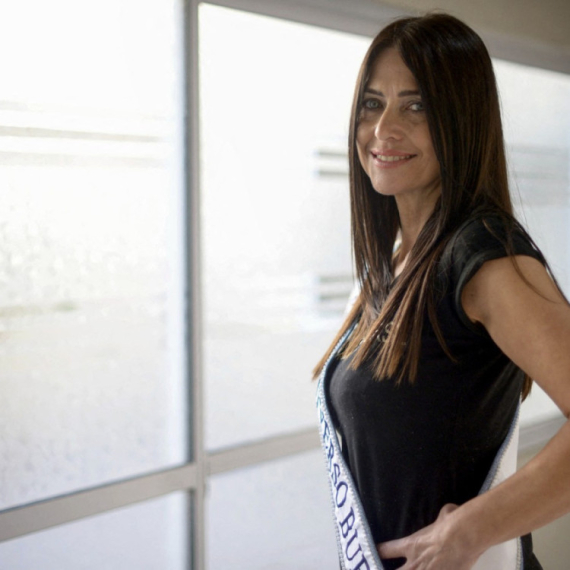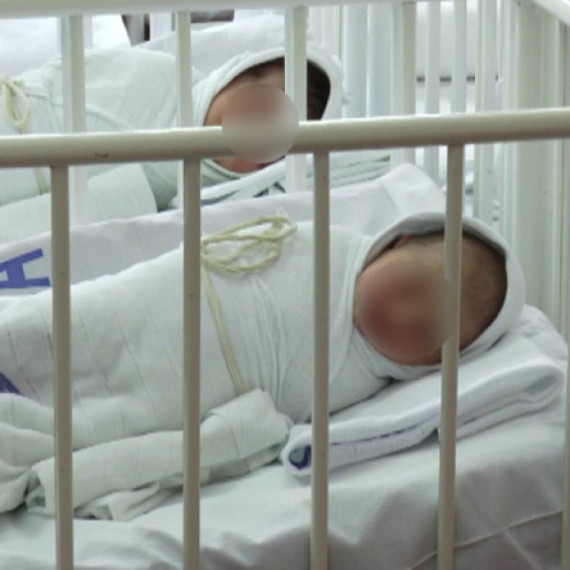Western ambassadors: Serbia's place is in EU
U.S. Ambassador to Serbia Michael Kirby said on Wednesday Serbia should change its image, "rebrand itself" and show its qualities to the world.
Wednesday, 13.03.2013.
19:36

MT. KOPAONIK U.S. Ambassador to Serbia Michael Kirby said on Wednesday Serbia should change its image, "rebrand itself" and show its qualities to the world. He added the U.S. saw Serbia in Europe and that it was up to Serbia to find its way to the EU. Western ambassadors: Serbia's place is in EU Kirby spoke at the panel discussion entitled Geopolitical Framework of Serbia's Economic Recovery at the 20th Kopaonik Business Forum and stressed that foreign visitors viewed the Serbian people as open, good people who like to enjoy themselves, but that Serbia should pass that message to those who had not visited it. "Serbia has to work on rebranding itself, he noted. The U.S. think the new brand should be Serbia in the EU, because it is good for both the EU and Serbia, but also for the relations between Serbia and the U.S., Kirby explained. Serbia should be seen as a good place for business and profit, but also as a hospitable place," he added. Britain supports Serbia's EU integration, and the EU cannot be whole unless Serbia becomes its member, British Ambassador to Serbia Michael Davenport stressed. "Serbia has to continue its reforms and EU integration," he said, adding that a predictable business environment was important for attracting investments, and that Serbia still had to work on that while taking note of the views of the business community. He commented on the situation in the EU and said it had to work on increasing its competitiveness compared to the rest of the world, but also its flexibility and adaptability, so it could face the challenges of the 21st century. The enlargement policy is of great importance and it is in the interest of all Europeans that it continues and the Western Balkans becomes a part of the EU, Italy's Ambassador Armando Varricchio stressed, adding that it involved "certain compromises, but not humiliation". "No one wishes to humiliate others, because humiliation cannot bring results," he noted. This is about believing in the same values, he pointed out, adding that it was well known Serbia sometimes saw the EU as someone handing out homework assignments. The talks with Pristina are very important, he said, adding that the main goal was to create stability in the region. Once the talks start, and Italy, of course, wants that as soon as possible, Serbia will have to go through stages and criteria, he stated, adding that they were not requirements and that the word should not be used. He commented on good cooperation between Italy and Serbia, remarking that the trade between the two nations was EUR 2.3 billion in 2012, and that Italian investments stood at EUR 2 billion, while the Italian companies recorded a turnover of EUR 2.5 billion in Serbia. Italian companies have realized they can work with Serbian companies and that Serbia is a dynamic market, which has improved Serbia's image in Italy, Varricchio said. French Ambassador to Serbia Francois Xavier Deniau said that the economic crisis in the EU was not short-term, but that it lasts still, adding that the EU member states have learned important lessons including that one cannot live on loans. Measures have been taken within the EU, while at the national level the French government pledged to achieve a fiscal balance and encourage competitiveness, he stated. Moreover, Deniau noted that a survey in France questioning whether the EU is a source of hope has showed that the number of citizens who agree with this stance has reduced twice compared to 2003. The ambassador said that France want to see Serbia within the EU, and that this is a natural thing. He suggested that Serbia should get involved in the peacekeeping mission in Mali, and that it is up to the Serbian government to decide on that, adding that this could be a positive signal for Serbia by which it would show that it is ready to help in the resolution of security problems. German Ambassador Heinz Wilhelm said Germany was Serbia's biggest partner in trade and that the public in Serbia was happy with the investments coming from Germany. "Most officials of German companies are satisfied with their business and treatment in Serbia," he noted, adding it was good there was work on improving the business environment. "The Serbian government and public pay great attention to foreign investments, but domestic investments should also be stimulated," he pointed out, adding that one of the solutions was to get Serbs from outside the country to open companies in Serbia. (Tanjug) Tanjug
Western ambassadors: Serbia's place is in EU
Kirby spoke at the panel discussion entitled Geopolitical Framework of Serbia's Economic Recovery at the 20th Kopaonik Business Forum and stressed that foreign visitors viewed the Serbian people as open, good people who like to enjoy themselves, but that Serbia should pass that message to those who had not visited it."Serbia has to work on rebranding itself, he noted. The U.S. think the new brand should be Serbia in the EU, because it is good for both the EU and Serbia, but also for the relations between Serbia and the U.S., Kirby explained. Serbia should be seen as a good place for business and profit, but also as a hospitable place," he added.
Britain supports Serbia's EU integration, and the EU cannot be whole unless Serbia becomes its member, British Ambassador to Serbia Michael Davenport stressed.
"Serbia has to continue its reforms and EU integration," he said, adding that a predictable business environment was important for attracting investments, and that Serbia still had to work on that while taking note of the views of the business community.
He commented on the situation in the EU and said it had to work on increasing its competitiveness compared to the rest of the world, but also its flexibility and adaptability, so it could face the challenges of the 21st century.
The enlargement policy is of great importance and it is in the interest of all Europeans that it continues and the Western Balkans becomes a part of the EU, Italy's Ambassador Armando Varricchio stressed, adding that it involved "certain compromises, but not humiliation".
"No one wishes to humiliate others, because humiliation cannot bring results," he noted. This is about believing in the same values, he pointed out, adding that it was well known Serbia sometimes saw the EU as someone handing out homework assignments.
The talks with Priština are very important, he said, adding that the main goal was to create stability in the region.
Once the talks start, and Italy, of course, wants that as soon as possible, Serbia will have to go through stages and criteria, he stated, adding that they were not requirements and that the word should not be used.
He commented on good cooperation between Italy and Serbia, remarking that the trade between the two nations was EUR 2.3 billion in 2012, and that Italian investments stood at EUR 2 billion, while the Italian companies recorded a turnover of EUR 2.5 billion in Serbia.
Italian companies have realized they can work with Serbian companies and that Serbia is a dynamic market, which has improved Serbia's image in Italy, Varricchio said.
French Ambassador to Serbia Francois Xavier Deniau said that the economic crisis in the EU was not short-term, but that it lasts still, adding that the EU member states have learned important lessons including that one cannot live on loans.
Measures have been taken within the EU, while at the national level the French government pledged to achieve a fiscal balance and encourage competitiveness, he stated.
Moreover, Deniau noted that a survey in France questioning whether the EU is a source of hope has showed that the number of citizens who agree with this stance has reduced twice compared to 2003.
The ambassador said that France want to see Serbia within the EU, and that this is a natural thing.
He suggested that Serbia should get involved in the peacekeeping mission in Mali, and that it is up to the Serbian government to decide on that, adding that this could be a positive signal for Serbia by which it would show that it is ready to help in the resolution of security problems.
German Ambassador Heinz Wilhelm said Germany was Serbia's biggest partner in trade and that the public in Serbia was happy with the investments coming from Germany.
"Most officials of German companies are satisfied with their business and treatment in Serbia," he noted, adding it was good there was work on improving the business environment.
"The Serbian government and public pay great attention to foreign investments, but domestic investments should also be stimulated," he pointed out, adding that one of the solutions was to get Serbs from outside the country to open companies in Serbia.



























































Komentari 7
Pogledaj komentare